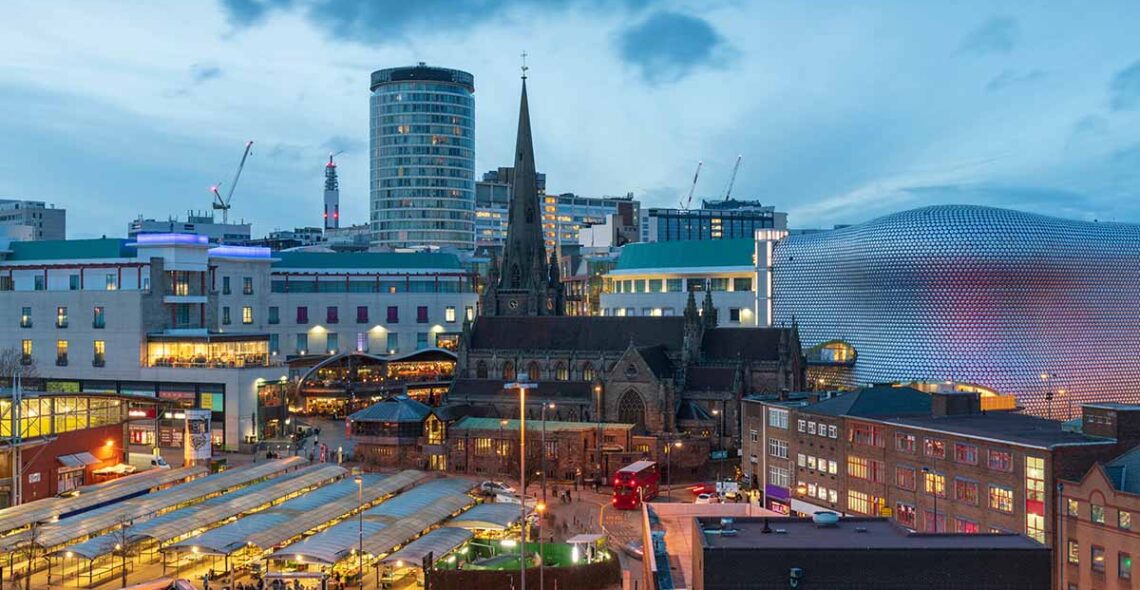Introduction
Gigabit Networks has a vision to connect the Midlands. The alternative network provider, founded in 2019, is on a mission to bring high speed services to areas of the country that have historically struggled to establish reliable, high capacity connectivity.
Working in partnership with networking infrastructure providers, Neos Networks and CityFibre, Gigabit Networks is focused on improving connectivity in and around the ‘Golden Triangle’ of Nottingham, Leicester and Derby.
David Yates, co-founder of Gigabit Networks, says “Our initial research identified that 40,000 businesses are currently getting inadequate connectivity speeds. We felt that by offering ultra-fast, ultra-reliable connectivity to these regions, we could help them to digitally transform.”
The challenge
In partnership with CityFibre, Gigabit Networks is in the process of rolling out connectivity services to key cities across the Midlands including Derby, Coventry, Wolverhampton, Leicester and Nottingham. The Full Fibre network in the cities will eventually cover up to 60,000 SME businesses and more than 750,000 households. As part of this, the business also hopes to offer high speed services to around 70,000 social housing residents, who have previously been denied access to high-speed internet – a problem that became particularly evident during the pandemic.
However, to roll out these services successfully, Gigabit Networks must ensure the underlying infrastructure is proven to be robust and resilient. To do this the alt net needed a scalable and reliable backhaul network. “When we looked in the marketplace and asked certain people for recommendations, the name that kept coming up was Neos Networks,” says Yates. “They’re investing a lot in their backbone network, and we knew instantly that they’d be able to provide the scalable backhaul services required to support our ambitions.”
The outcome
Having delivered exchange backhaul services to connectivity providers for a number of years Neos Networks was happy to help.
At Gigabit Networks request, Neos Networks delivered an initial 100Gbps Network-To-Network Interface (NNI) at Gigabit’s main data centre, based in Slough, as well as delivering exchange backhaul services from Derby and Coventry to the data centre. “This will provide us with enough capacity for between 5,000 – 6,000 subscribers across both cities,” says Yates.
Gigabit Networks has already placed additional orders for three more cities and its intentions are to provide enhanced connectivity in at least one more, in the region in partnership with Neos Networks. As Yates says: “Time to market for these things is quite crucial. With Neos Networks, we know that their expansive network already serves the areas we’re targeting. This means that services can be delivered at speed. The faster we can get a service live, the better it will be for businesses and residents.”
Yates went on to say “The investment made in Neos Networks fibre footprint was not just in core cities but also second and third tier regions as well. This made them unique as it allowed them to offer high capacity connectivity in areas other providers couldn’t reach.”
Gigabit is also delivering on its goal to connect people in social housing to high-speed connectivity. “It’s very important for us that, what’s out there right now is not anywhere near where it needs to be to empower online learning and remote working. [Services are] difficult to find and not marketed well. We’re partnering with the cities and the housing associations and actively marketing this product to support social housing residents.”
Yates points out that the Midlands contains some of the most deprived areas of the UK. “You can make a difference here, by connecting communities. With Neos Networks, delivering our backhaul network we feel confident that we can deliver the service levels we want to provide our subscribers – we’re now actively reaching these local communities to help address their specific needs.”
“Especially coming out of the pandemic, we’ve realised how much reliable connectivity means to us all. We’re a digital nation now.”






